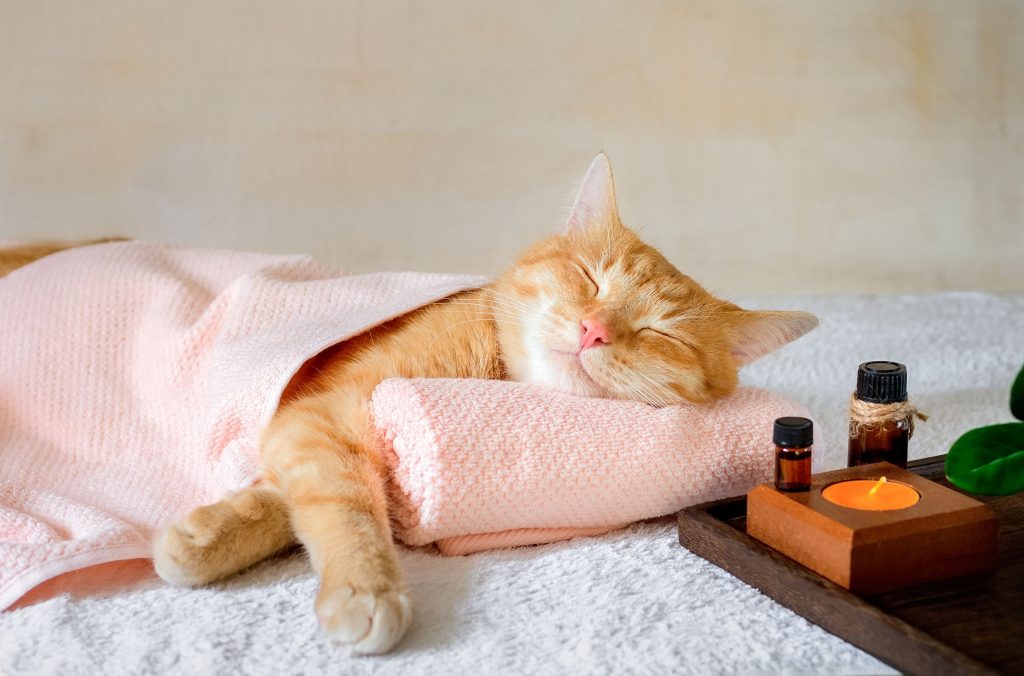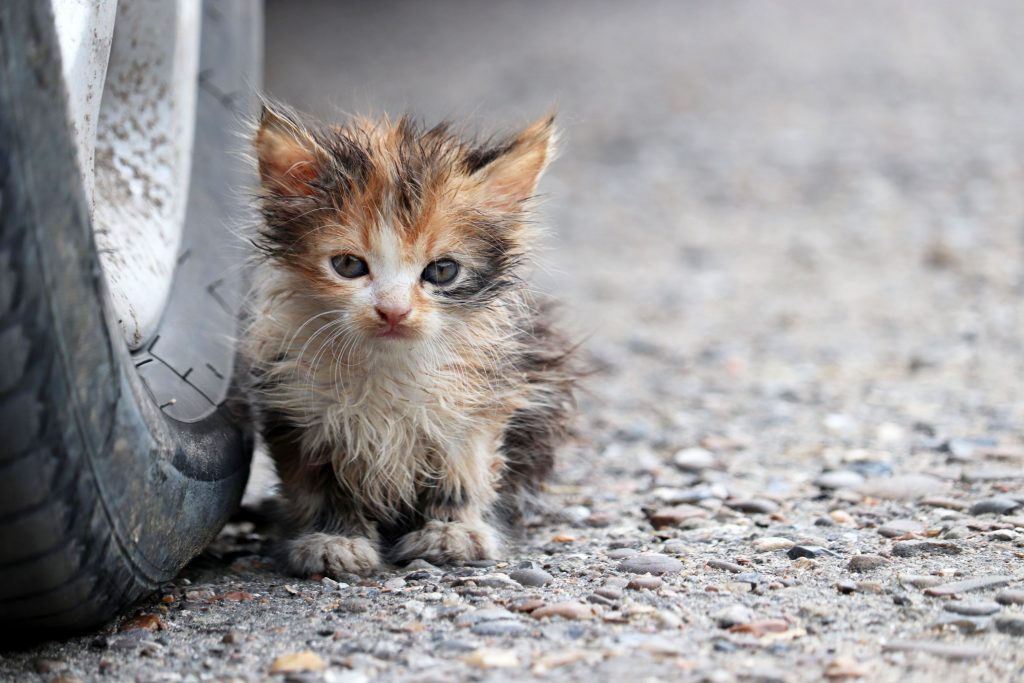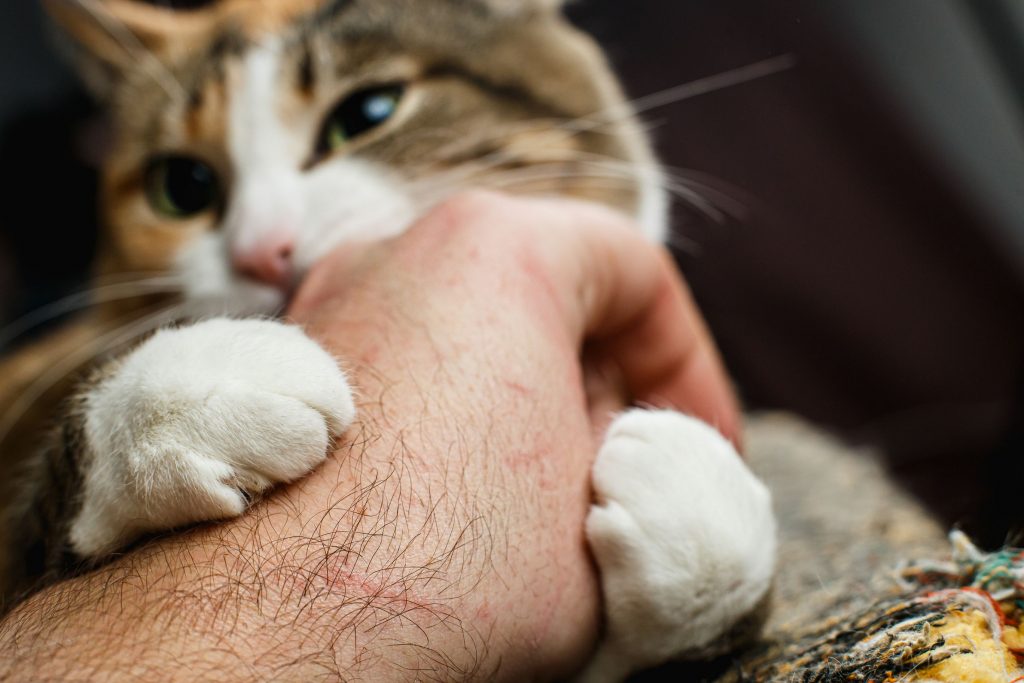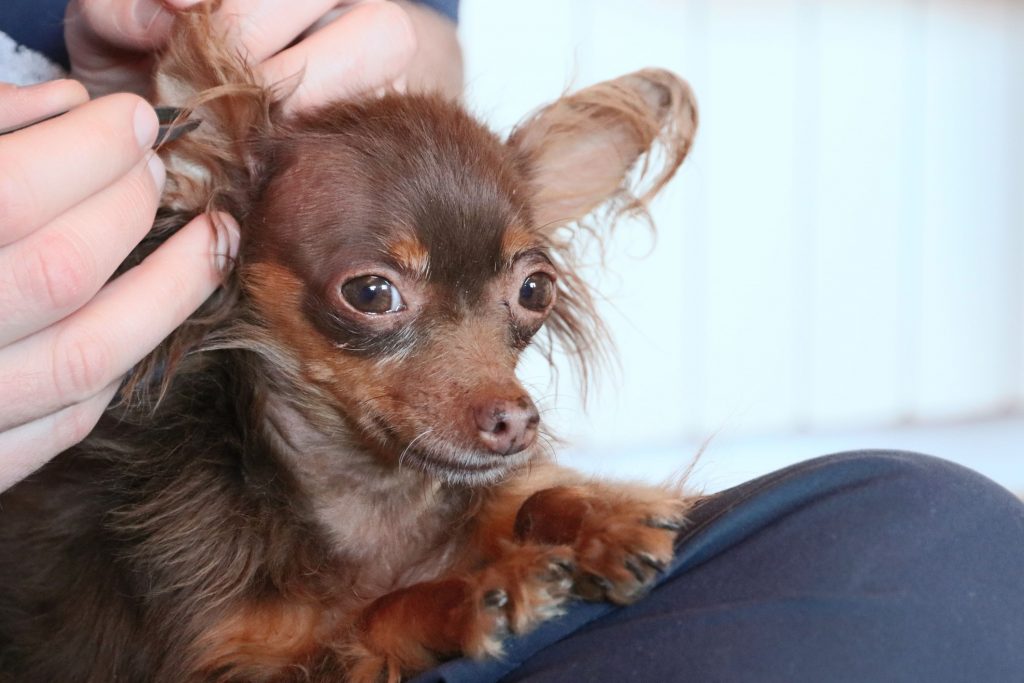Posts in Category: The Cat’s Meow
The Science of Purring: Why Cats Do It and What It Really Means
The feline purr is a quirk that cat owners marvel over and admire. The comforting, familiar sound of a cat purring is mysterious, though, and leaves many of us with questions. We may not know everything about cat purring, but Volunteer Veterinary Hospital has some answers to many of your questions regarding this incredible cat behavior.
Continue…It’s Always a Good Time to Adopt a Cat
June is National Adopt-A-Cat Month. With so many beautiful, sweet, playful felines available for adoption, there’s never been a better time to adopt a cat. If you’ve been wanting to find the best possible addition to your family, we are so happy to help you get started.
Continue…3 Reasons Pets Are Great for Your Health
There’s nothing better than coming home to our furry pets at the end of a long day at work. If you’re anything like us, all you want to do till bedtime is snuggle up with your kitty, take your dog for a walk, or play with your ferret. And you often feel better after spending time with your pet.
The physical and mental health benefits we get with our pets are significant. The team at Volunteer Veterinary Hospital would like to share the top three reasons why pets are good for your health.
Continue…Pet Wellness Tips for 2023
The new year is the time for new beginnings, and while you’re making a list of New Year’s resolutions, make sure you include ways to enrich the lives of your pets as well.
At Volunteer Veterinary Hospital, we want to help you make 2023 your pet’s healthiest and happiest year yet. Here are our team’s top wellness tips for the new year.
Continue…Have You Heard Of Hyperthyroidism in Cats?
Cat owners are typically looped into the common potential health issues facing modern felines. In addition to heartworm disease, diabetes, feline leukemia virus (FelV), and feline immunodeficiency virus (FIV), hyperthyroidism in cats is increasingly prevalent. Characterized by weight loss, increased appetite/thirst, and vomiting or diarrhea, this condition must be promptly addressed. The good news is that once hyperthyroidism in cats is properly managed, a high quality of life is attainable.
Anatomy Details
Located within the neck, the thyroid gland produces a hormone that regulates metabolism. When too much hormone is produced, metabolism increases which explains why cats lose weight despite a voracious appetite. While this symptom is a red flag, many owners don’t automatically realize that it’s tied to something serious.
Cats between the ages of 10-13 are commonly diagnosed with hyperthyroidism. Blood tests and other diagnostics can help diagnose hyperthyroidism in cats, and rule out a series of other common conditions like kidney disease, diabetes, and cancer (all share similar clinical symptoms). We may also need to perform an electrocardiogram, chest x-ray, ultrasound, and blood pressure to gain a better understanding of a cat’s condition.
Since a vast majority of cases are linked to a benign tumor on one or both lobes of the thyroid gland, it is critical to move quickly toward effective treatment. Prognosis is usually very good if caught early.
Next Steps
Depending on the severity, hyperthyroidism in cats may be properly managed with medical treatment, close monitoring, and prescription diet. Medication taken twice a day for life can decrease the production of thyroid hormone.
Injections of radioactive iodine can also decrease thyroid hormone levels in a shorter amount of time, but require a hospital stay. This is often the fastest and safest method to lower thyroid hormone levels.
Surgical removal of the thyroid gland may be necessary in extreme cases. However, the elimination of the thyroid gland may result in serious health complications.
Every Step of the Way
Your team at Volunteer Veterinary Hospital understands that hyperthyroidism in cats can be very challenging to face. Due to its effect on feline blood pressure, heart health, eye health, neurologic functions, and the kidneys, this condition must be closely observed. If we’re able to catch the disease early on, hyperthyroidism in cats can be effectively treated.
Hyperthyroidism in Cats
Your cat’s annual wellness exam creates the opportunity to catch health problems before they get out of hand. Early detection can lead to a better prognosis, affecting your cat’s overall health and lifespan.
Remember, if you see any changes to your cat’s eating/drinking behavior, vomiting and/or diarrhea, poor coat quality, and weight loss, please don’t hesitate to call us at (865) 609‑0311.
Top 5 Places to Go with Your Pet in Knoxville
At Volunteer Veterinary Hospital, we love our hometown for so very many reasons. One of our favorites, though, is all of the pet-friendly spots in and around the city. If you are looking for something to do with your pet in Knoxville, here are some of our top suggestions:
Barley’s Taproom & Pizzeria
One of Knoxville’s favorite spots for pizza and beers, Barley’s Taproom & Pizzeria has a dog-friendly patio. Bring Fido on your next dining excursion to enjoy the tasty menu selections and hard-to-beat atmosphere. The taproom is open until 10 PM on weeknights and until midnight on weekends.
Continue…How To Keep Your Cat From Scratching You.
Does My Pet Have an External Parasite?
When you adopt a pet into your family, you generally are up for whatever comes along with taking care of your new ward. Most people, though, didn’t sign up to take care of any hitchhikers that might come along with their furry family members. Luckily, Volunteer Veterinary Hospital has you covered when it comes to identification, treatment, and prevention of the dreaded external parasite in pets.
Continue…How to Do Your Part to Prevent Zoonotic Diseases in Pets
Zoonotic diseases have been a growing concern for both humans and animals. We have heard a lot recently about these diseases that are transmitted from wildlife to people and pets. There is currently much more of a spotlight on diseases, particularly viruses, that mutate and affect other species.
This is why the team at Volunteer Veterinary Hospital is here with some insight into how to protect everyone from these serious diseases.
Continue…How Can I Tell If My Cat Is Sick?
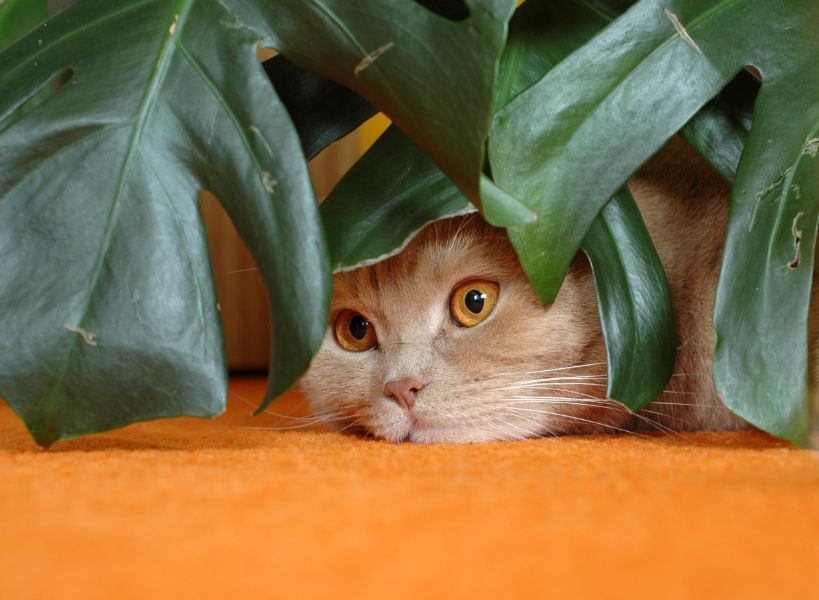
Cats can certainly be mysterious, but if they’re suffering from an unknown illness or injury their behavior may be more confusing. Because cats are hardwired to mask any signs of weakness, it can be fairly easy to miss (or misunderstand) the subtle signs they do show to indicate that something is not right. If you’re wondering whether or not your cat is sick, we have some tips to help.
Continue…




